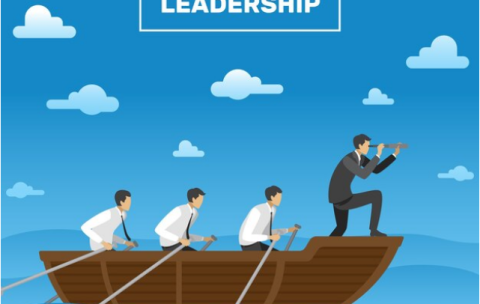Cross-Border Mergers and Acquisitions (M&A) Trends
Cross-border mergers and acquisitions (M&A) involve the acquisition or merging …
What you'll learn
Understanding Cross-Border M&A
Key Trends in Cross-Border M&A
Cultural and Regulatory Considerations
Integration and Synergy
Risk Management in Cross-Border M&A
Case Studies of Successful Cross-Border M&A
Cross-Cultural Communication and Leadership
Financial and Legal Aspects
Strategic Planning for Cross-Border M&A
Future Outlook and Emerging Trends
Global Entrepreneurship Trends
Global entrepreneurship trends are characterized by a blend of technological …
What you'll learn
Understand the dynamics of the global entrepreneurship landscape, including trends and challenges.
Explore the impact of emerging technologies on entrepreneurial ventures worldwide.
Analyze the influence of cross-cultural factors on entrepreneurial decision-making.
Assess global funding and investment trends shaping the entrepreneurial ecosystem.
Examine the role of government policies and regulations in shaping global entrepreneurship.
Develop skills for global networking and collaboration in the entrepreneurial context.
Explore trends in social entrepreneurship and its contribution to addressing global challenges.
Ethical and Sustainable Business Practices: A Modern Approach
Introduction: Welcome to “Ethical and Sustainable Business Practices: A Modern …
What you'll learn
Understand the fundamental principles of ethics and sustainability in business.
Analyze the impact of business practices on society and the environment.
Evaluate the role of corporate governance in promoting ethical conduct.
Develop skills for ethical decision-making in complex business scenarios.
Explore strategies for integrating sustainability into core business operations.
Assess the role of leadership in fostering an ethical and sustainable organizational culture.
Examine global trends and best practices in ethical and sustainable business.
Learn to communicate the business case for ethical and sustainable practices effectively.
Cultivate a mindset of continuous improvement and commitment to ethical excellence.
Apply ethical and sustainable principles to real-world business challenges through case studies and projects.
Pioneering Ideas: The Art and Impact of Thought Leadership
In an era brimming with information and constant digital noise, …
What you'll learn
Understand the concept, significance, and historical context of thought leadership.
Identify the attributes, responsibilities, and ethical considerations of a thought leader.
Learn strategies for developing unique insights and pioneering ideas in your field.
Understand the role of branding and effective communication in establishing oneself as a thought leader.
Explore various platforms and mediums for disseminating thought leadership content.
Analyze the symbiotic relationship between thought leadership and innovation.
Learn to leverage thought leadership for career advancement, business growth, or societal impact.
Understand the global context of thought leadership, including cross-cultural considerations and digital globalization.
Develop a personal action plan for embarking on your thought leadership journey.
Create and present an original piece of thought leadership content.
Mastery in the Tertiary Sector: Innovating Service Industries in a Dynamic Global Economy
Welcome to “Mastery in the Tertiary Sector: Innovating Service Industries …
What you'll learn
Define the scope, dynamics, and economic significance of the tertiary sector.
Analyze global trends influencing service industries, including technological advancements, sustainability, and consumer behavior.
Understand the principles of service management and innovation in a digital era.
Evaluate the social, cultural, and environmental impacts of service industries, emphasizing ethical considerations and corporate social responsibility.
Develop strategies for customer relationship management and personalized service experiences.
Apply critical thinking and problem-solving skills to real-world challenges within the tertiary sector.
Understand the regulatory and policy environment surrounding various service industries globally.
Embrace leadership roles in creating organizational change and fostering innovation in service industries.
Plan and execute a project or initiative aimed at service improvement or innovation.
Communicate effectively with diverse stakeholders, including customers, employees, and investors, in a global context.
Navigating the Quinary Sector: High-Level Decision Making and Human-Centric Services in Global Economies
Welcome to “Navigating the Quinary Sector: High-Level Decision Making and …
What you'll learn
Comprehend the fundamental components, roles, and significance of the quinary sector in global economies.
Analyze the interdependence between the quinary sector and other economic sectors, appreciating the holistic ecosystem of economic activities.
Evaluate the challenges and opportunities inherent in high-level decision-making processes, especially in governmental and institutional settings.
Understand the role of culture, health, education, and research in economic development and societal well-being.
Apply ethical reasoning and empathy in decision-making processes concerning human-centric services.
Develop strategic initiatives that address global challenges such as inequality, sustainability, and technological disruption through quinary sector platforms.
Enhance leadership and communication skills to engage with diverse stakeholders effectively.
Innovate within traditional frameworks of public and private institutions, driving transformation and progress.
Critically assess the impact of policies, initiatives, and decisions emanating from the quinary sector on global economies and societies.
Craft a detailed, visionary project that proposes solutions to a contemporary global challenge through the lens of the quinary sector.
Mastery in the Quaternary Sector: Information Services and Knowledge-Based Economies for Tomorrow’s MBA Leaders
Welcome to “Mastery in the Quaternary Sector: Information Services and …
What you'll learn
Understand the critical role and characteristics of the quaternary sector in modern economies.
Analyze the key challenges and opportunities emerging within this sector, including technology, innovation, and regulatory aspects.
Evaluate the interplay between information services and traditional sectors in creating competitive advantages.
Apply strategic management and entrepreneurial principles to initiate and sustain knowledge-based ventures.
Explore the ethical considerations and responsibilities inherent in information management and intellectual services.
Utilize advanced financial assessment tools to evaluate investments and performance in the quaternary sector.
Craft innovative marketing and branding strategies specific to services in the information and knowledge domain.
Develop leadership and collaboration skills suited to culturally diverse and geographically dispersed teams and projects.
Assess the global impact of the quaternary sector on socio-economic structures, employment, and innovation.
Design a detailed project or business model addressing a contemporary issue or opportunity within the quaternary sector.
Navigating the Secondary Sector: Industrial Innovation and Operational Excellence for MBA Aspirants
Welcome to “Navigating the Secondary Sector: Industrial Innovation and Operational …
What you'll learn
Understand the scope, role, and dynamics of the secondary sector in the global economy.
Analyze the key challenges and opportunities faced by industries within this sector, including sustainability, technology integration, and market competition.
Evaluate the impact of global economic conditions, trade policies, and regulatory environments on secondary sector industries.
Apply strategic management and operational excellence principles to real-world scenarios in manufacturing and production.
Recognize the importance of innovation and product development in maintaining competitiveness.
Utilize financial and managerial accounting principles to make informed decisions in an industrial context.
Assess the role of supply chain management and logistics in enhancing efficiency and customer satisfaction.
Develop leadership skills specific to the challenges and opportunities of the secondary sector.
Create marketing strategies that address the unique aspects of industrial products and B2B relationships.
Design a comprehensive business plan or strategy proposal addressing a current issue or opportunity in the secondary sector.
- 1
- 2










